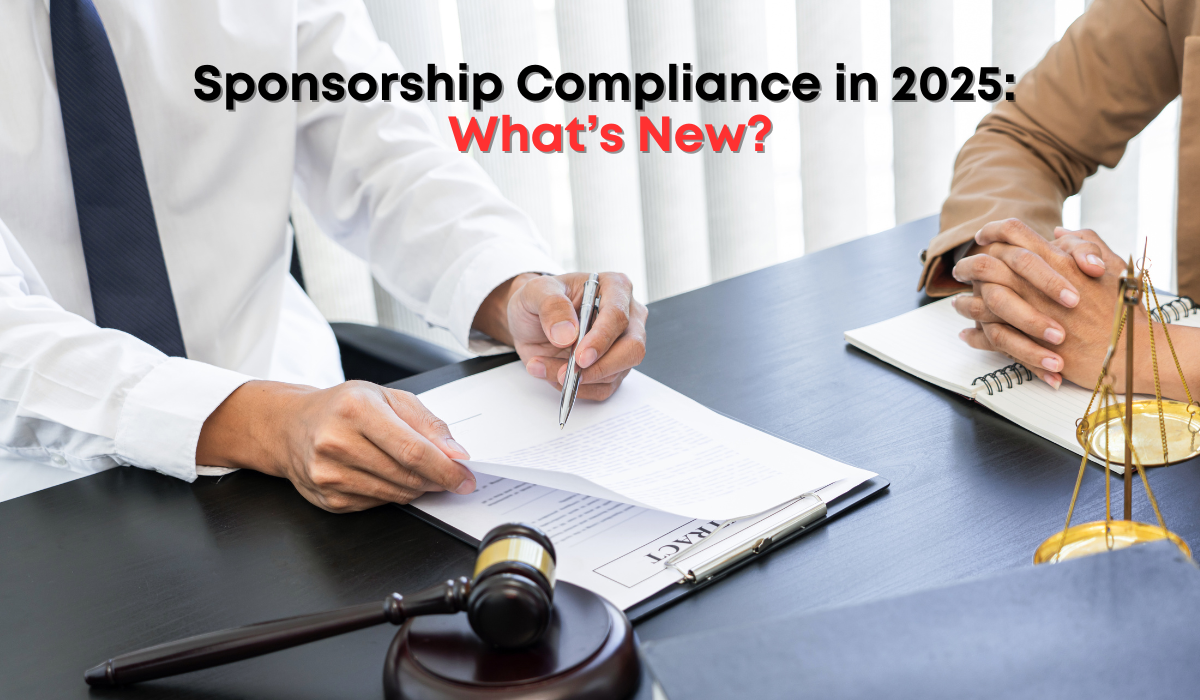In a move aimed at bolstering the integrity of the UK’s immigration system, the Home Office released substantial updates to its guidance for work sponsors on 31 December 2024 and 1 January 2025. These updates impact several key documents, including:
- Guidance for Sponsors Part 1: Apply for a Licence
- Sponsor a Worker: Sponsor Guidance Part 2
- Guidance for Sponsors Part 3: Sponsor Duties and Compliance
- Sponsor a Skilled Worker
While these changes span multiple documents, many updates focus on aligning the guidance to reflect new rules. This article unpacks the most significant changes, offering insight for employers navigating these new regulations.
New Restrictions on Sponsorship Costs
One of the most notable changes relates to restrictions on the costs employers can pass on to sponsored workers. Historically, employers could recover some expenses, such as visa fees and the Immigration Health Surcharge, under certain circumstances. However, allegations of exploitation—particularly in the care sector—prompted the Home Office to take decisive action.
As of 31 December 2024, sponsors are prohibited from recouping:
- Sponsor licence fees and associated administrative costs (including premium services) for Skilled Worker sponsorship.
- Certificate of Sponsorship (CoS) fees for Skilled Workers assigned on or after 31 December 2024.
- The Immigration Skills Charge (already prohibited but reinforced in the new guidance).
These measures aim to protect sponsored workers from falling into work-related debt and exploitation. Employers must now bear these costs entirely, a significant shift that will particularly impact sectors reliant on overseas talent.
Expanded Definition of “You and Your”
The guidance has expanded its definition of “you and your” when referring to sponsors. Previously, this included owners, directors, key licence personnel, and those involved in the day-to-day running of the organisation. Now, it also includes individuals listed as “Persons with Significant Control” on a sponsor’s Companies House profile. This addition necessitates greater diligence during sponsor licence applications to ensure all relevant individuals meet compliance standards.
Key Personnel Eligibility Changes
Significant updates to the rules governing key personnel for sponsor licences have also been introduced. For licences applied for after 31 December 2024, at least one Level 1 user must now:
- Be a settled worker in the UK.
- Be an employee, director, or partner of the sponsoring organisation.
This marks a departure from previous practices, where these roles could be split between two individuals. Start-ups and overseas businesses may find these changes particularly challenging, as they might lack eligible personnel to meet these dual requirements.
Furthermore, key personnel must:
- Not be legally prohibited from acting as company directors (unless explicitly permitted by a court).
- Possess a valid National Insurance number unless exempt.
Sponsors are encouraged to review their current key personnel to ensure compliance and consider upgrading Level 2 users to Level 1, as the new Sponsor UK system will eliminate Level 2 user roles.
Personal Capacity Sponsorship Restrictions
New restrictions have also been placed on sponsorship in a personal capacity. The guidance now explicitly states that sponsor licences cannot be used to employ or engage workers for personal benefit, except in cases of private servants in diplomatic households. This change will particularly impact roles in private households, such as nannies and carers. Employers in this category must explore alternative visa routes, such as the Domestic Worker visa or non-sponsored routes like UK Ancestry or the Youth Mobility Scheme.
Other Notable Updates
- Biometric Residence Permits: Following the cessation of biometric residence permits from 31 October 2024, sponsors must now familiarise themselves with eVisas, short-term vignettes, and ink stamps.
- Defined Certificate of Sponsorship (CoS): Clarification has been provided that a defined CoS must be assigned within 90 days of allocation.
- Licence Renewal and Enforcement: While sponsor licences no longer require renewal every four years, UKVI can now impose B-rating action plans twice within any rolling four-year period.
Reflections and Implications
These updates represent a significant overhaul of sponsorship guidance, with far-reaching implications for UK employers. While the changes aim to address exploitation and streamline processes, they also introduce complexities that could deter smaller businesses from applying for sponsor licences. Employers must act swiftly to audit their current practices, update policies, and ensure compliance to avoid penalties or licence revocation.
For industries heavily reliant on migrant workers, these changes will necessitate careful planning and potential cost adjustments. Seeking expert legal advice will be crucial to navigating these new rules and maintaining compliance.
As the UK government continues to refine its immigration system, employers must remain vigilant and adaptable. These changes may signal a broader shift in how the UK manages its labour market and protects its workforce, both domestic and migrant.
Get in touch: For a comprehensive understanding of your options or queries on UK immigration matters, contact GigaLegal Solicitors at 02074067654 or click here to book a no-obligation consultation with an immigration expert.


